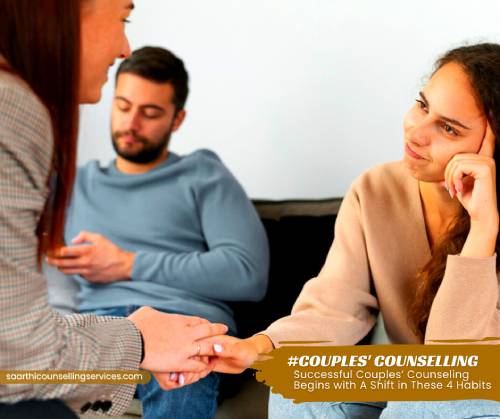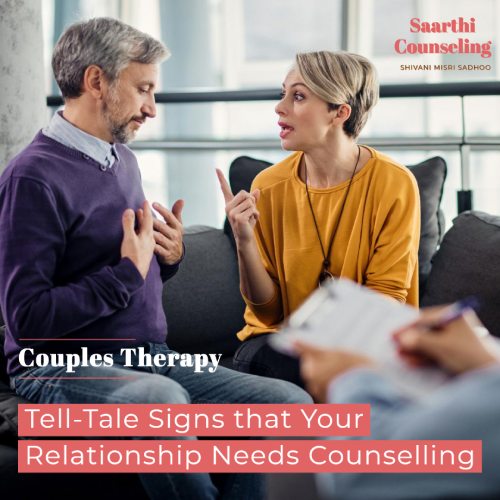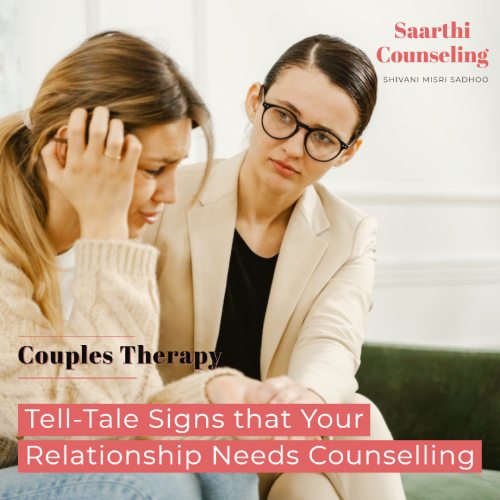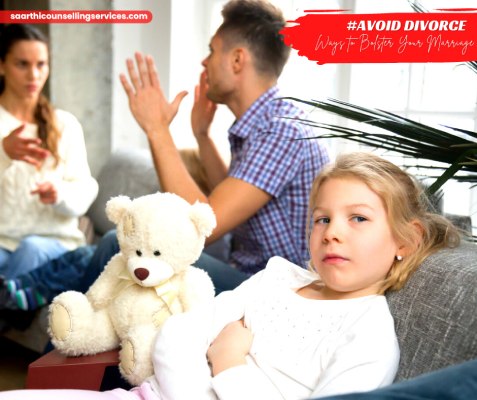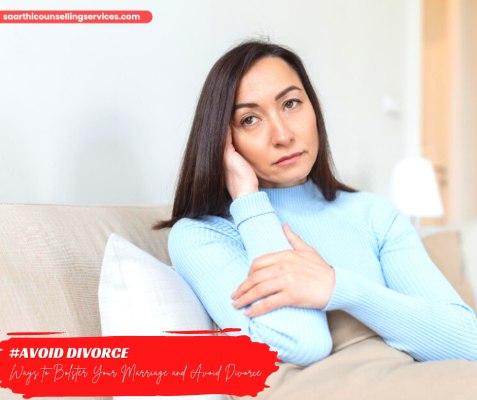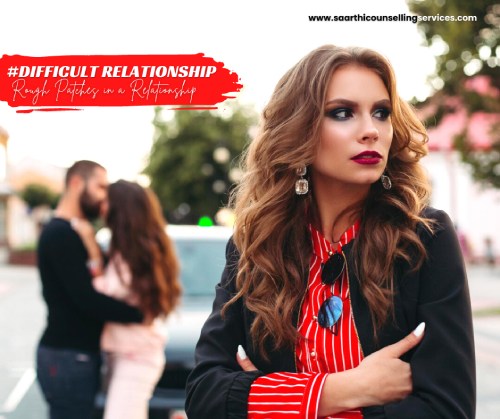Sometimes, there are little things that can make a real difference to the success of your relationship. Small gestures – from a hug to a kind word – can be the glue that binds two people together. Conversely, contempt or criticism can break that bond of togetherness forever.
Have you ever wondered why some relationships fail while others seem to thrive and last a lifetime? Relationships are complex – and even the strongest ones require hard work and dedication to maintain. Yet even with hard work and dedication, many relationships still fail to stand the test of time. Therefore, it is essential to understand the reasons why relationships don’t always last so that we can strive to make our last says, Shivani. Seeking couples counseling can be a great way to get help in finding solutions to the issues that may be causing tension in your relationship. Let’s explore the underlying causes of relationship breakdowns and discover ways to prevent them from happening from Delhi’s top marriage counselor Shivani Misri Sadhoo.
Don’t criticize
Criticizing someone’s character involves making negative judgments and comments about them, their personality, or their beliefs. It can be damaging to a relationship because it can lead to feelings of resentment and insecurity. For example, when someone says “you’re so selfish” or “you don’t know how to do anything right”, it is considered criticism because it is attacking the person’s character and not a specific issue. It can erode trust and respect, and can also lead to a decrease in communication, which can make it difficult for the two people to work through their differences. It also can lead to negative self-perception, as the person being criticized may see themselves as inadequate or flawed in some way. This is similar to a virus that infects a computer, slowly undermining the system and causing various issues to arise. It can corrupt files and data, and if left unchecked, can result in permanent damage that can be difficult to repair. Instead of being critical and causing permanent damage, focus on being constructive and supportive in a relationship. This can help to foster positive self-perception and help avoid potential issues arising from negative criticism. For example, rather than saying “You should have done this differently,” try saying “Here’s an idea for a different approach.”
Don’t be contemptuous
There are times when couples treat each other with disrespect and sarcasm resulting in what is known as contempt between them. This can have a profound effect on their relationship as it erodes trust and creates a hostile environment. Contempt can be viewed as a form of emotional victimization, as it can lead to feelings of resentment, anger, and hurt. The partner that displays contempt can become increasingly overwhelmed by the negative emotions they are causing, leading to a vicious cycle of communication breakdown. Contempt is often shown through subtle gestures like rolling eyes, or through more obvious signs like pointing a finger or raising the voice. It is an expression of disdain and superiority that is not only emotionally painful but can also lead to damaging communication patterns in relationships. This is like pouring salt on an open wound; the pain it causes can never be forgotten and the damage it does is irreparable. It is not only destructive but also dangerous to any relationship, causing emotional trauma that is hard to forget.
Such behavior should not be condoned but corrected, as it can lead to a breakdown in communication and trust, which can be extremely difficult to repair. For instance, being told you are “stupid” or “useless” by someone you love and trust can have long-term impacts on your self-esteem and emotional well-being. So, what should we do? To prevent such a painful experience, it is important to practice respectful communication, be mindful of one’s words, and approach conflict resolution with kindness and understanding. Instead of lashing out with hurtful words, try to remain calm and talk openly about your feelings and needs in a respectful and constructive way. For example, rather than saying “you’re wrong” or “you’re stupid,” one could choose to say “I don’t understand why you think that” or “let’s talk about it and try to understand each other better.”
Learn to appreciate instead of being contemptuous. Appreciation fosters a sense of connection and understanding between people, which can lead to stronger relationships. When someone takes the time to tell you how much they appreciate something you have done, it gives you a sense of accomplishment and pride. It also encourages more positive interactions between individuals, as they are likely to remember the positive experience and be more likely to cooperate in the future. For example, a simple “thank you” or “I appreciate your help” can go a long way in improving relationships between people.
Don’t be defensive
When you get defensive, it’s like putting up a wall between you and the other person. This is similar to fighting fire with water: if you pour fuel on the fire, it will only get bigger and more intense, but if you pour water on it, it will help to contain and smother the flame. Using a calm and understanding approach to a situation is the most effective way to keep it from escalating. It can lead to a breakdown in communication, as well as feelings of mistrust and resentment on both sides. It’s better to take a step back, take a deep breath, and try to understand why the other person is feeling the way they are. Instead, try to be open to hearing the other person’s perspective without being judgemental. This will foster a deeper understanding and allow both sides to work through their differences in a healthier way. For instance, if your partner is expressing frustration with a situation, instead of reacting defensively, it may be helpful to ask questions such as “What concerns do you have?” or “How can we work together to address this?”
Instead of being defensive, be responsible in a relationship. Take ownership of the situation, and look for ways to resolve the issue, instead of being closed off or trying to deflect blame. This helps ensure that both parties have the opportunity to express their feelings and work together to find a solution. It also helps to prevent the issue from escalating into something more serious, and it can help to strengthen the relationship in the long run. For instance, if a couple is arguing about how to spend money, each partner can take responsibility for the conversation and suggest potential solutions to their financial issues, instead of just blaming each other.
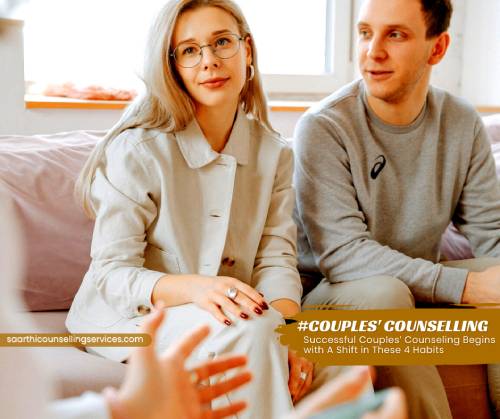
Don’t stonewall your partner
Sometimes when the going gets tough, it can be helpful to take a step back and look at the problem from a different perspective. But, many people try to avoid such confrontations and conversations. Instead, they simply withdraw from the conversation and completely refuse to respond. This kind of behavior when one person is cognitively or emotionally inaccessible to another person and builds a wall between themselves is called stonewalling. This is similar to building a fortress around yourself when faced with a difficult situation. You retreat inside, away from the storm, but are unable to actually address and resolve the issue. For instance, a person who is stonewalling may refuse to answer their partner’s questions, may avoid eye contact, or may leave the conversation altogether. Stonewalling can be damaging to relationships, as it creates an emotional disconnect between the two people, leading to mistrust and resentment. This often leads to a deadlock in the conversation, where nobody is willing to budge and no progress is made.
To overcome stonewalling, it is important to try to approach the issue from a place of understanding and compassion. Making sure to respect the other person’s feelings and trying to empathize with their point of view can help to create an atmosphere that is conducive to resolving the issue. It is also important to take breaks if the conversation becomes too heated. In addition, it is necessary to express your feelings calmly and clearly so that the other person can understand your problem better. Doing so can help to bridge the gap between both partners, enabling them to come to a resolution more quickly and efficiently.
As people grow and change, so do their relationships. People are complex and have different wants and needs, and relationships can become strained as they learn to navigate these changes. With understanding and communication, couples can overcome these challenges and strengthen their bond. If you still face problems, don’t hesitate to seek professional advice.
